
Less Is More.
Ludwig Mies van der Rohe
Welcome to the 34th post in the
rambunctiously refreshing R recitations, or
R4. Today s post is about architecture.
Mies defined modernism. When still in Europe, I had been to the
Neue Nationalgalerie in Berlin which provides a gorgeous space for the arts. Twenty-five years ago, I worked next to his
Toronto-Dominion Center in Toronto. Here in Chicago we have numerous buildings: the
Federal Center (the
Dirksen, the
Kluczynski and the
US Post Office rounding out the square in the Loop), multiple buildings on the
Illinois Tech (aka IIT) Campus where he taught in the architecture department he created and lead, the (formerly called)
IBM Plaza building at the river and more.
Structure and minimalism, often based on the same core elements of black steel beams and glass, are a landmark of these buildings. One immediately senses that there is nothing left to take away.
Code and programming can be similar. We too compose based on parts we assemble and combine to create something hopefully larger than the parts. The difficulty arising from too many dependencies is something we discussed before both here in
this 2018 post but also via the
tinyverse site.
Over the last seven days, and via uploads to new versions to
CRAN, I have switched the vignettes of seven packages from using
minidown (which in turn requires
rmarkdown and
knitr, plus their aggregate dependencies) to using
simplermarkdown with its sole dependency. That is, of course, a personal choice. I tend to not even knit much in my vignettes (and
simplermarkdown supports what I do) but to rely mostly on
pandoc for code rendering. So I only need a small subset of the functionality provided, but I can not access just that as the default comes with numerous bells, whistles as well as enough other instruments to form a small marching band.
A picture may express this better:
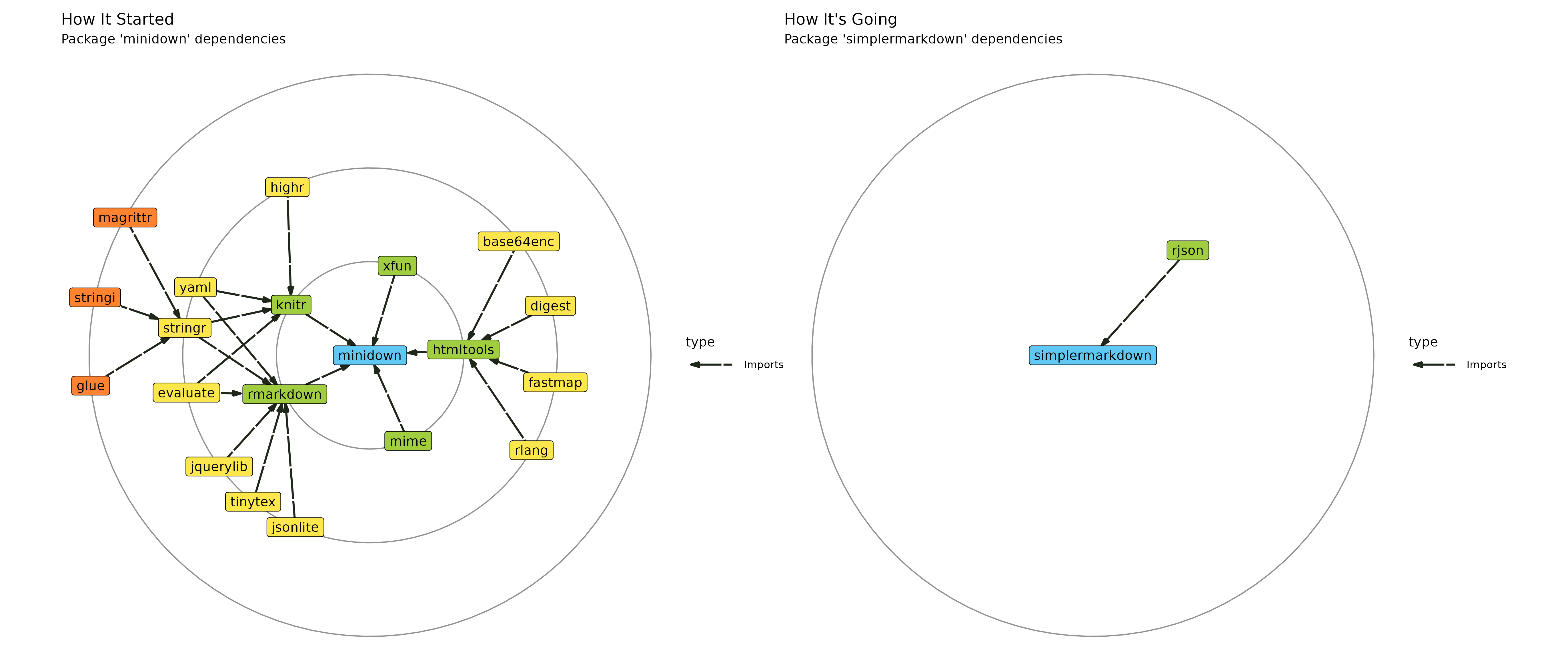
(courtesy of the
deepdep package for the figures).
Which of these two setups is less likely to surprise you with random breaks, say in continuous integration? Which takes less time to install, and burns fewer cpu cycles just to be set up,
each time we run a new test? Which is taxing your students, colleagues, collaborators, users, less on setup for use or replication? The first, comprises a total of 29 dependencies, or the second with just one?
My money is on the second choice. Less is more.






 Welcome to my new Blog for Technical Stuff.
For a long time I was planning to start publishing technical articles again but
to do it I wanted to replace my old
Welcome to my new Blog for Technical Stuff.
For a long time I was planning to start publishing technical articles again but
to do it I wanted to replace my old 
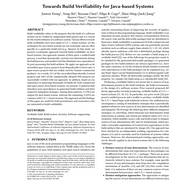







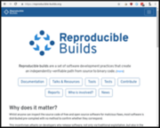

 Looking at my blog, it seems I haven't written anything about homebrewing in a
while. In fact, the last time I did was when I had a
Looking at my blog, it seems I haven't written anything about homebrewing in a
while. In fact, the last time I did was when I had a 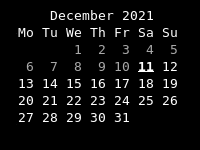 The default output of
The default output of 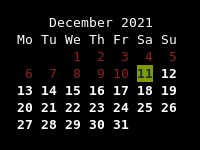 You can change the foreground color, background color and/or style of a date
using a combination of various stylenames like
You can change the foreground color, background color and/or style of a date
using a combination of various stylenames like 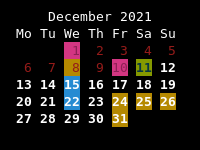 Using the
Using the 
 (courtesy of the
(courtesy of the